
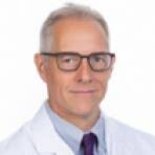
Can you sweat your way out of a bad diet? Not exactly. In this episode, we talk with a bariatric surgeon and nutrition expert Dr. Neil McDevitt to unpack the science behind weight gain, why exercise alone won’t cut it, and what actually works when it comes to long-term health.
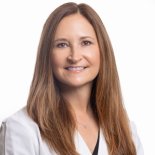
From trendy online clinics to “roadside” hormone centers, misinformation about women’s hormones is spreading fast- potentially putting patients at risk. In this episode, [Dr. Christian Cook] explains what hormones actually do, when treatment is truly needed and how to avoid harmful, unregulated products. Learn how to protect your health and make hormone decisions based on science, not sales tactics.
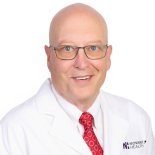
GLP-1 medications have quickly become household names for weight loss — but what’s myth and what’s medical breakthrough? Obesity medicine specialist Dr. John Cleek joins us to explain how these drugs work, who they help most and what to know about side effects, access and stigma. If you’ve ever wondered whether GLP-1s could be right for you or someone you love, this episode has the answers.

If your doctor has ordered a stress test, you might be wondering: What is it? Why do I need it? And should I be worried? In this episode, Novant Health cardiologist Dr. Aaron Ford breaks down what a stress test really tells us about your heart, what to expect during the procedure and how it helps guide your care.
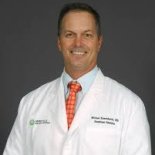
From weekend pickleball players to competitive pitchers, overhead athletes put unique stress on their shoulders and elbows, making injuries more common than many realize. In this episode, renowned orthopedic sports medicine surgeon Dr. Michael Kissenberth breaks down the most frequent issues he treats, why overuse can escalate into serious damage and the smart preventive habits that can keep athletes of all ages healthy and performing at their best.
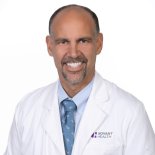
Knee injuries are on the rise in young athletes, from ACL tears to patellar issues that can sideline a promising season. Orthopedic surgeon Dr. Marc Haro joins us to break down what’s behind the trend, how to recognize warning signs early and the latest advances that are helping kids return safely to the sports they love.
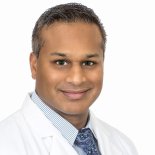
Obesity is more than a matter of willpower – it's a chronic disease that affects about 40% of Americans and increases the risk of serious health issues like diabetes, heart disease, stroke, joint pain and certain cancers.
In this episode of Meaningful Medicine, Dr. Nik Teppara of the Novant Health Surgical Institute addresses the stigma surrounding bariatric surgery. He shares the most common concerns patients express, explores the realities of weight-loss treatment options, and explains why surgery is not the “easy way out,” but often a life-changing decision toward better health and quality of life.
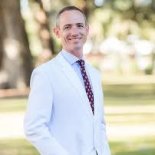
Eric Angermeier, MD, usually sees an uptick in outdoor-related hand and wrist injuries when the weather gets warmer. From dog walking to sports, you may be surprised at the most common injuries he treats.

Join us to explore how preventive measures can lead to significant health improvements. Discover the importance of screenings and early interventions from Dr. Jeffrey Warhaftig. Dr. Warhaftig is medical director of the Physician Quality Partners Accountable Care Organization, which ranked first in the nation for high quality performance in 2024 in the CMS Medicare Shared Savings Program.

Thinking about knee replacement? You may have more options than you realize. In this episode, orthopedic surgeon Dr. Robert Hoffman breaks down the range of nonsurgical treatments - including injections - that can relieve pain, improve mobility and even delay surgery.
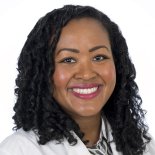
Menopause is a natural stage of life, but it often comes with challenging symptoms – from hot flashes and mood changes to sleep disruptions, weight gain, and an increased risk of osteoporosis.
“While menopause is expected, women don’t have to suffer in silence,” said Dr. Melissa Davies, an OBGYN at Novant Health.
In this episode of Meaningful Medicine, Dr. Davies explains what women can expect during each stage of menopause and the full range of treatment options available. She also unpacks the latest changes in hormone replacement therapy guidelines and how today’s approach to treatment emphasizes personalization and shared decision-making between patients and clinicians.
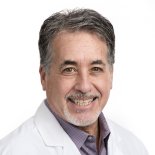
Join Dr. Phillip Marks, a urologist at Novant Health, as we explore the common condition of enlarged prostate, learning more about symptoms and treatment options.
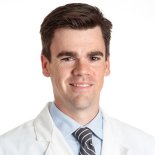
Robots in healthcare are having a moment. In the U.S., robotic-assisted surgery now accounts for more than 15% of all general surgeries, and it’s expected to double within the next five years. The future of medicine is here, but will it replace doctors in the operating room?
In this episode of Meaningful Medicine, Dr. Max McCabe, an orthopedic surgeon at Novant Health, will answer some common questions like: Who qualifies for robotic-assisted surgery? What are the benefits and are there any risks? What role does AI play? And will robots eventually replace the need for humans in the operating room?
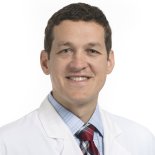
Pelvic floor health plays a vital role in everything from bladder control to core strength and overall wellness, but its importance is often misunderstood or overlooked. In this episode of Meaningful Medicine, Novant Health urogynecologist and pelvic surgeon Dr. Joseph Malek joins us to demystify pelvic floor disorders, share how therapy can help, and explain when to seek care. Whether you're postpartum, aging, or just looking to better understand your body, this conversation offers essential insights into maintaining pelvic health at every stage of life.
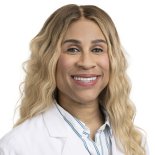
In this episode of Meaningful Medicine with Novant Health, cardiologist Dr. Desiree Dawson joins us to share five natural, evidence-based strategies for managing high blood pressure without medication. From the power of nutrition and movement to the often-overlooked role of sleep and stress, Dr. Dawson breaks down how small lifestyle changes can lead to big improvements in heart health. Whether you’ve recently been diagnosed with high blood pressure or simply want to take a more proactive approach to your cardiovascular health, this episode offers practical, science-backed advice you can start using today.
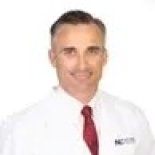
Is joint replacement only for seniors, or are younger patients reshaping the conversation? In this episode, Dr. Dustin Hambright explores the “age-old question” of whether age truly determines the right time for knee or hip replacement. We’ll dive into why more people in their 40s and 50s are opting for surgery, the challenges older adults may face and how advancements in technology are changing the game.
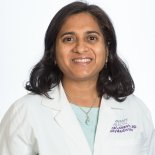
At Novant Health, the care we give extends beyond our medical centers and clinics with several virtual care options. But it’s important for patients to know and understand when it’s appropriate to use them. While they can be a wonderful resource for certain situations, the care provided by your doctor, face to face, is unmatched when it comes to your overall health and wellbeing.
In this episode of Meaningful Medicine, we’re learning more about a topic that’s become increasingly relevant in recent years – virtual care. It’s convenient and accessible, but it raises an important question … Can it truly replace in-person care? Joining us today is Dr. Anitha Lokesh, a family medicine physician at Novant Health, who can speak to how virtual care has enhanced the patient experience – and where its limits lie.
Learn more about Anitha Lokesh, MD
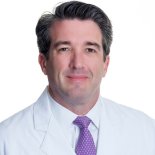
Dr. Jayme Stokes, a bariatric surgeon with Novant Health’s Weight Management & Wellness Clinic, discusses steps we can take to increase our health and wellness.
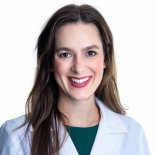
Join us as we explore how to interpret mammogram results with Dr. Breanna Durbin. Understand what your radiology report means and why further imaging may be needed.
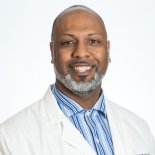
The average American coffee drinker consumes just over three cups of coffee a day. If this is you, you’re not alone. In fact, 7 in 10 Americans drink coffee every week. But is our reliance on coffee or soda/energy drinks healthy? And how much is too much?
In this episode of Meaningful Medicine Dr. John Card, a Internal Medicine Physician at Novant Health, spills the beans on the pros and cons of caffeine. He’ll also share if there are better or healthier options to choose from to help us wake up and get through the day.